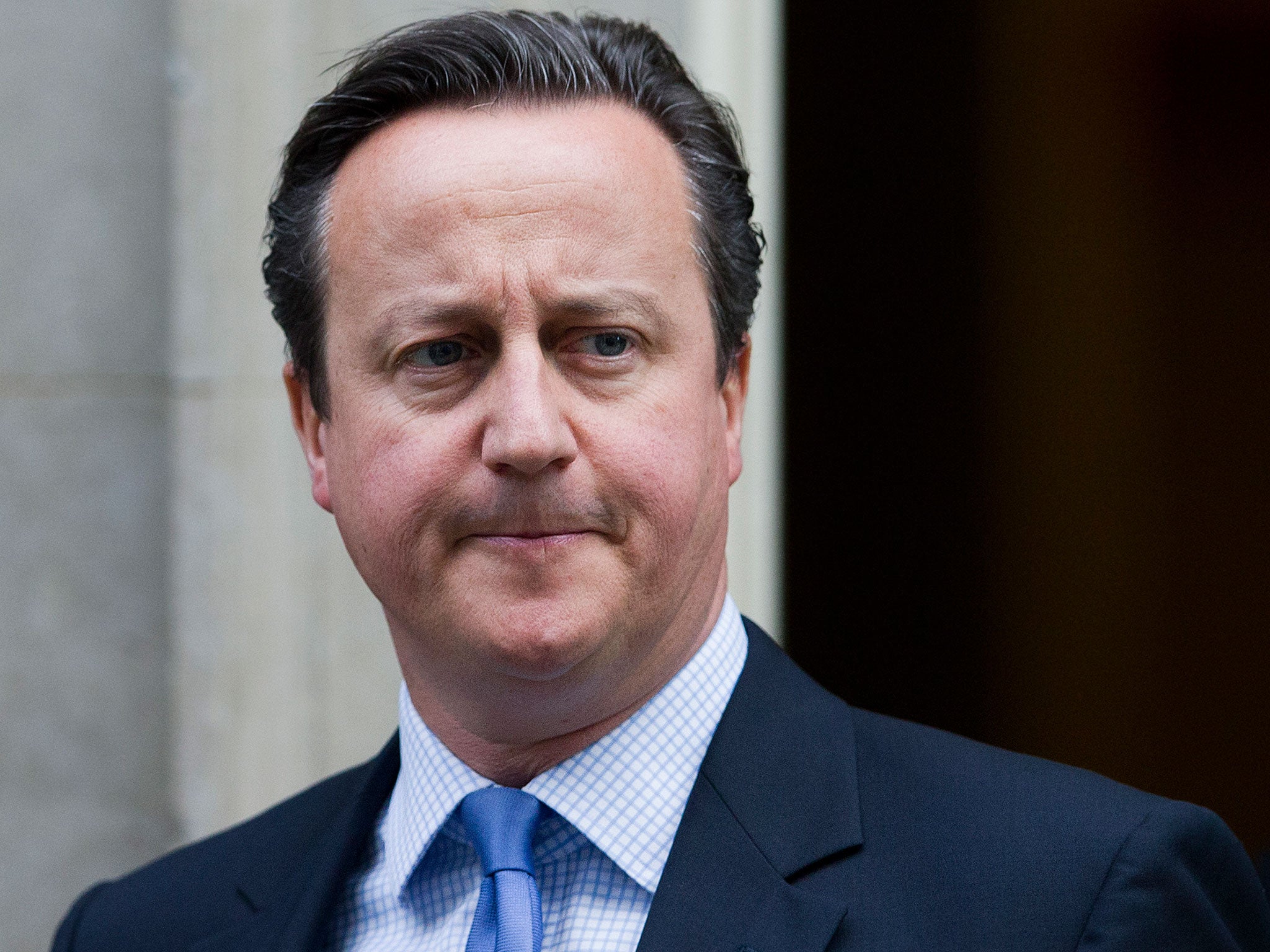David Cameron: Muslim Brotherhood members must be considered potential extremists but group should not be banned
Prime Minister finally publishes conclusions from long-awaited report into Muslim Brotherhood

David Cameron has said members of Muslim Brotherhood should be considered as potential extremists but stopped short of banning the group as he set out the conclusions of the long-awaited government report on the organisation.
The group, which played a central role in Egypt’s 2011 revolution, is considered a terrorist organisation by a number of countries but in others it has played a peaceful role in democratic elections.
Mr Cameron’s report concludes that it has a "highly ambiguous relationship with violent extremism" and parts of the organisation flies in the face of core British values.
It was completed in the summer but was not published after Saudi Arabia put pressure on the Government to ban the group.
Ministers have been accused of sitting on the report to avoid upsetting key allies in the Middle East.
The Prime Minister's report said the Muslim Brotherhood was a transnational network, with links in the UK and national organisations "in and outside the Islamic world".
In a scathing assessment, he described the movement as "deliberately opaque and habitually secretive".
In a statement to MPs, the Prime Minister wrote: “Aspects of the Muslim Brotherhood’s ideology and activities… run counter to British values of democracy, the rule of law, individual liberty, equality and the mutual respect and tolerance of different faiths and beliefs.
Egypt coup: Muslim Brotherhood calls for protests as military arrests leader Mohammed Badie
Show all 18"Parts of the Muslim Brotherhood have a highly ambiguous relationship with violent extremism. Both as an ideology and as a network it has been a rite of passage for some individuals and groups who have gone on to engage in violence and terrorism."
He added: “The main findings of the Review support the conclusion that membership of, association with, or influence by the Muslim Brotherhood should be considered as a possible indicator of extremism.”
Subscribe to Independent Premium to bookmark this article
Want to bookmark your favourite articles and stories to read or reference later? Start your Independent Premium subscription today.

Join our commenting forum
Join thought-provoking conversations, follow other Independent readers and see their replies